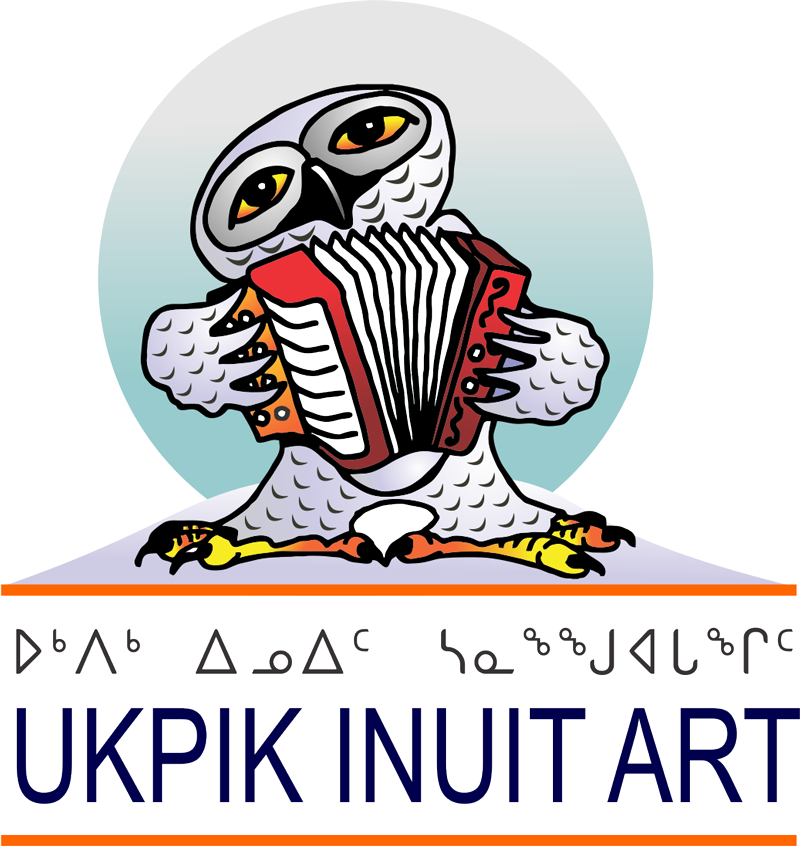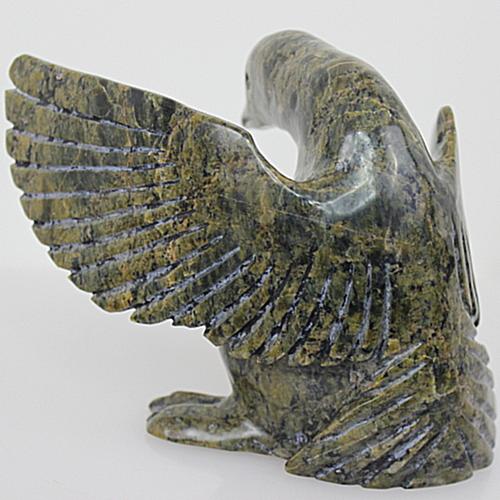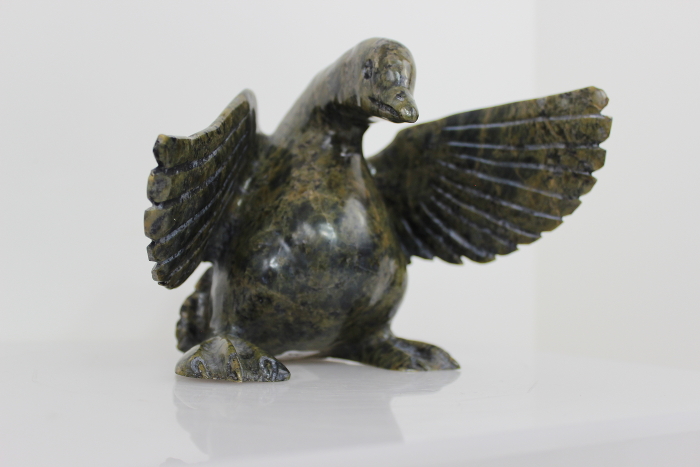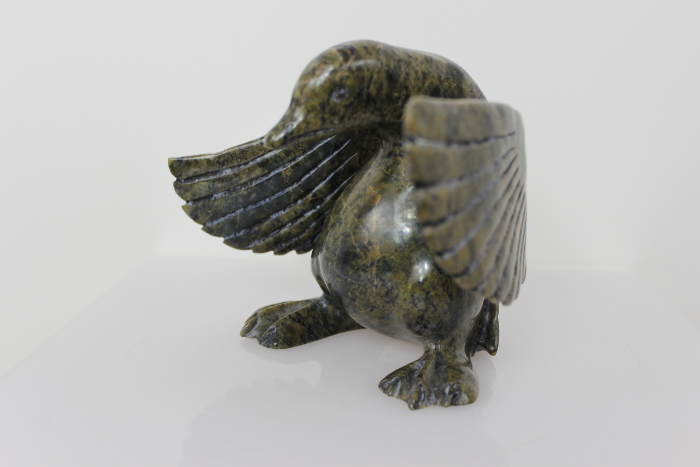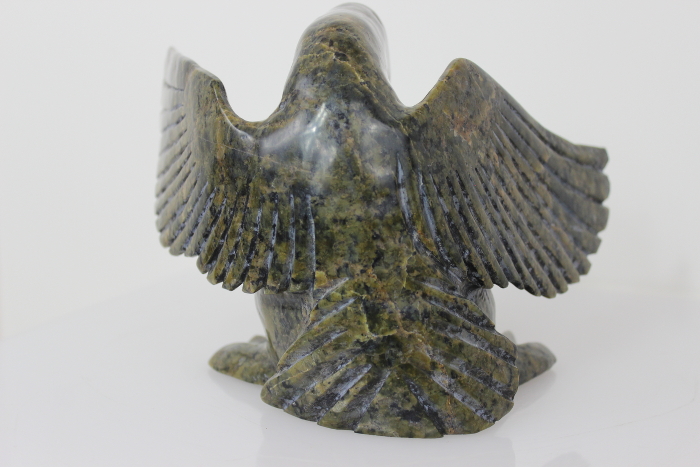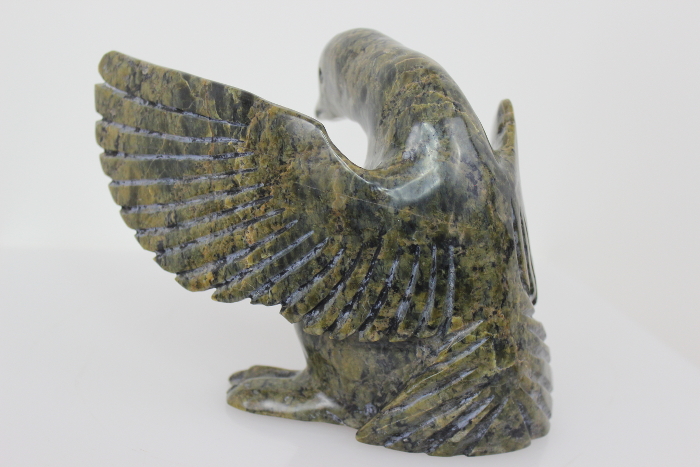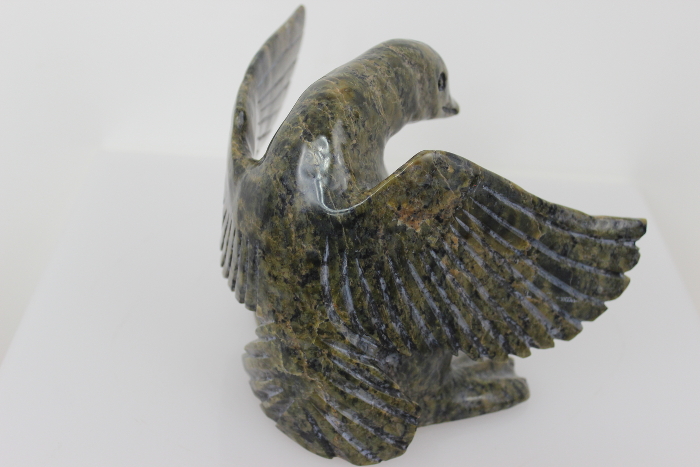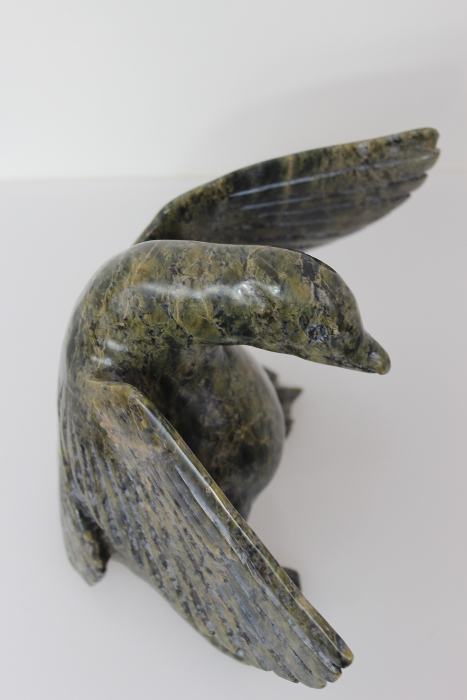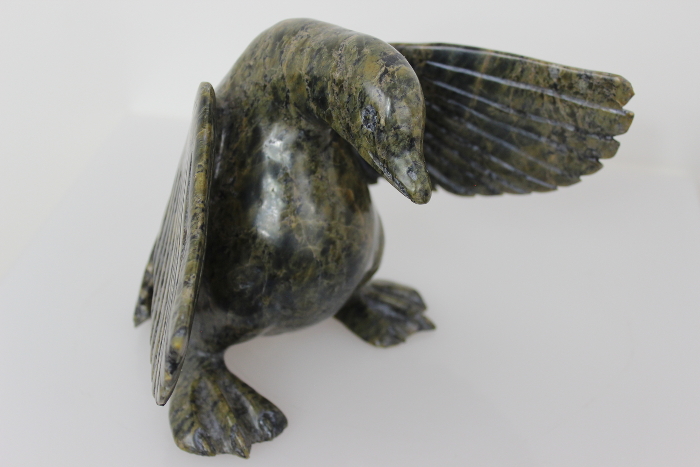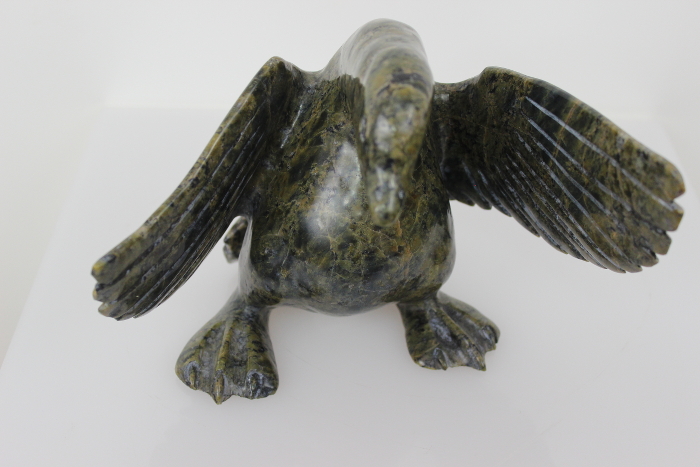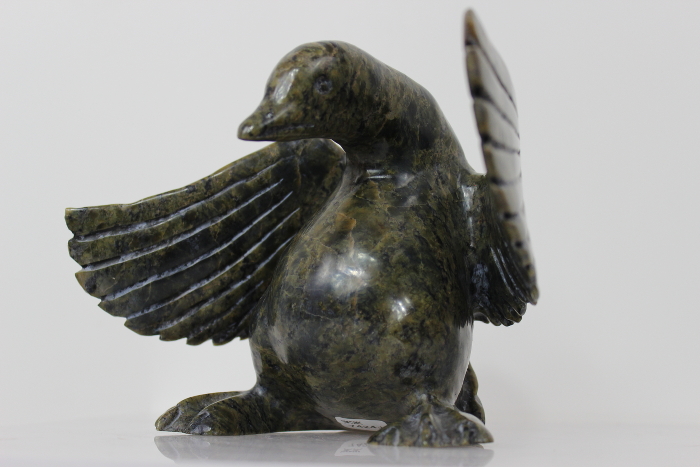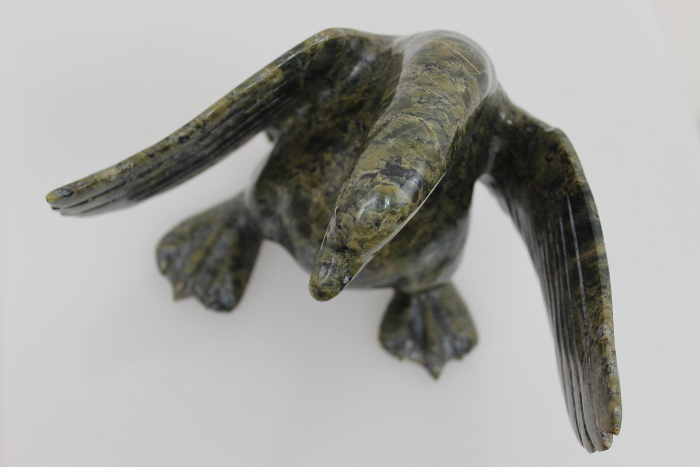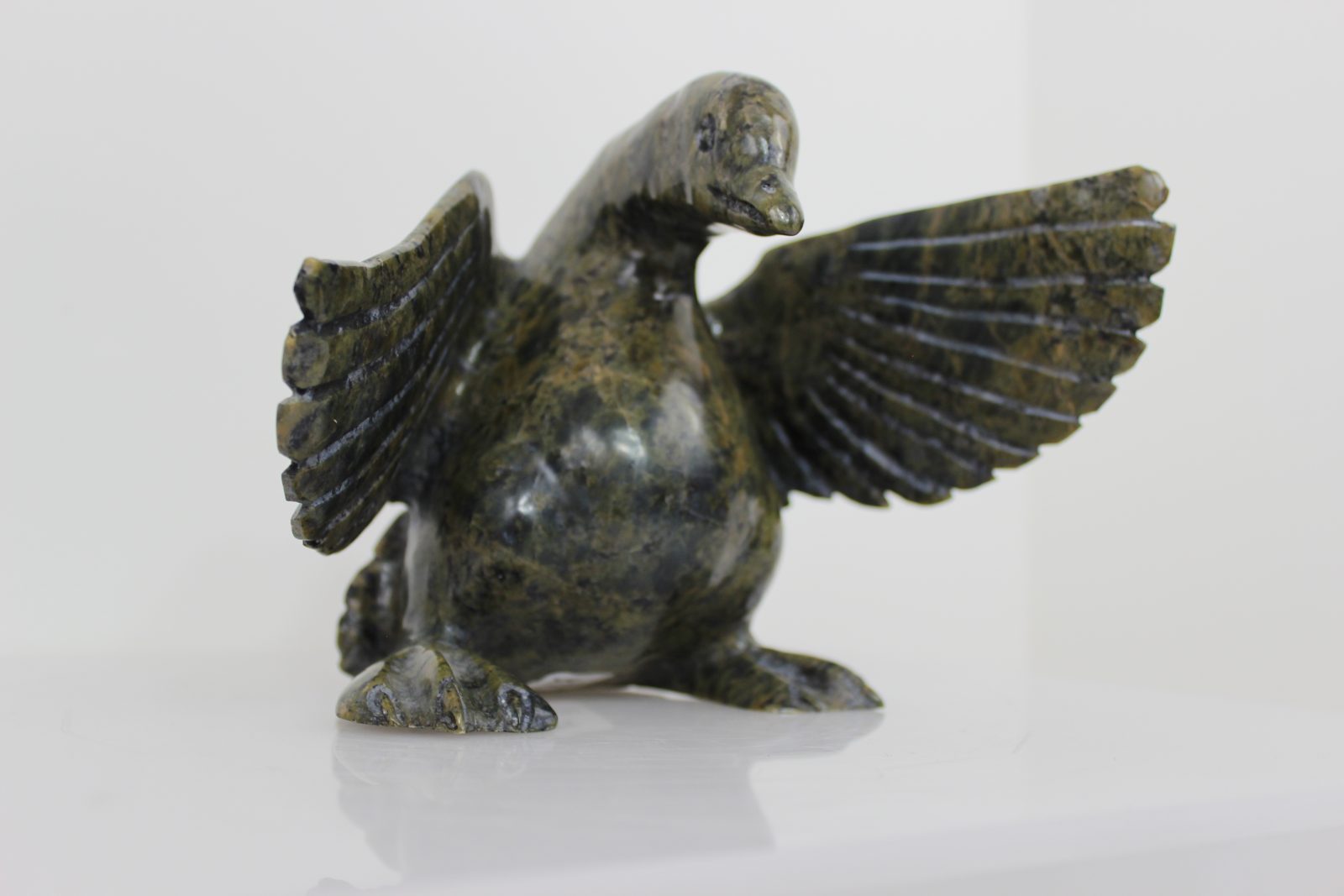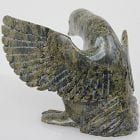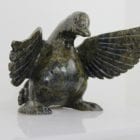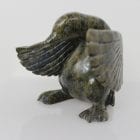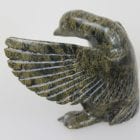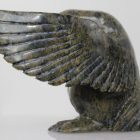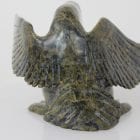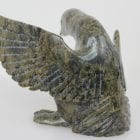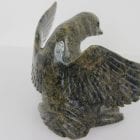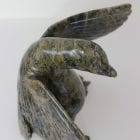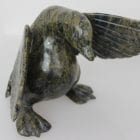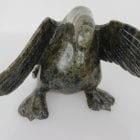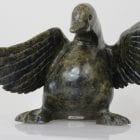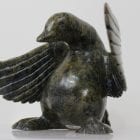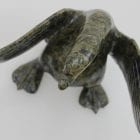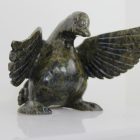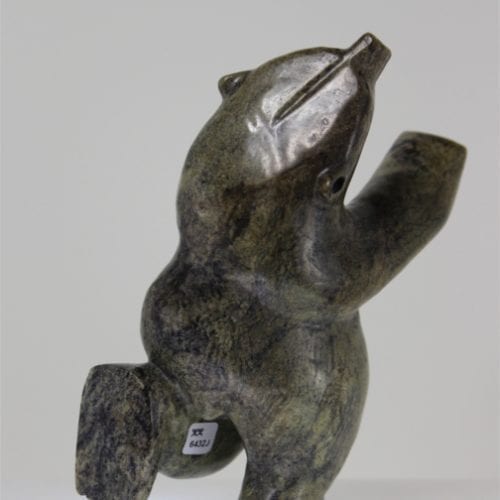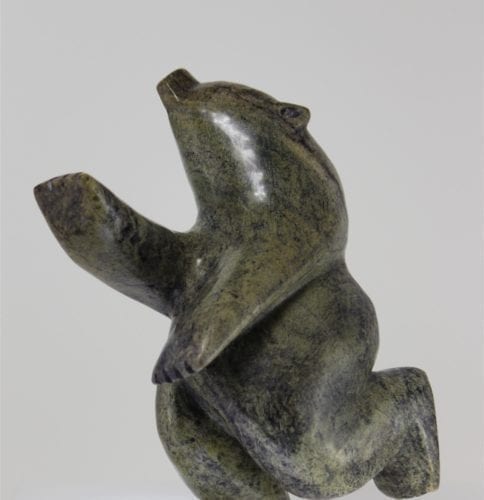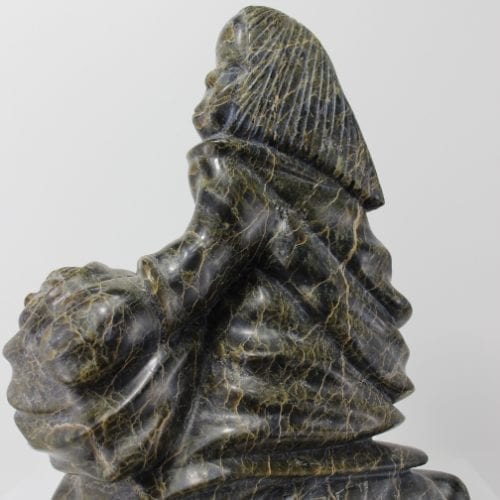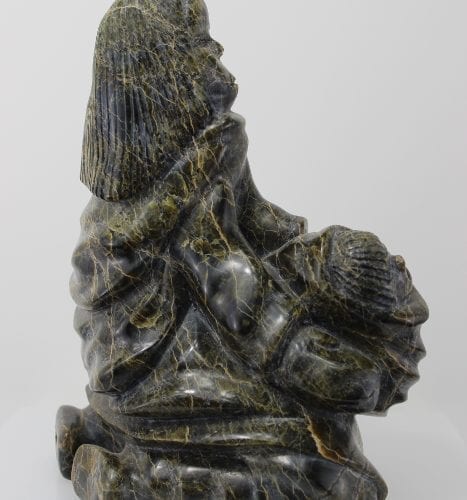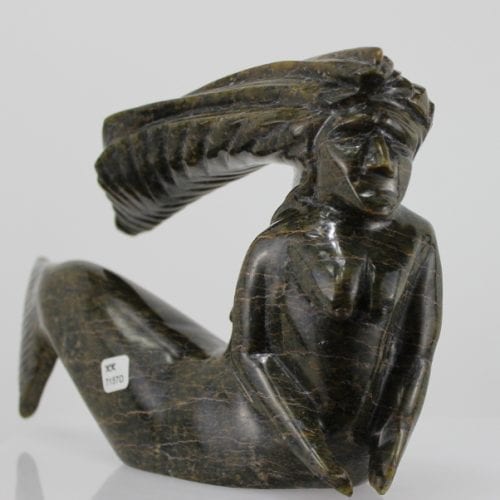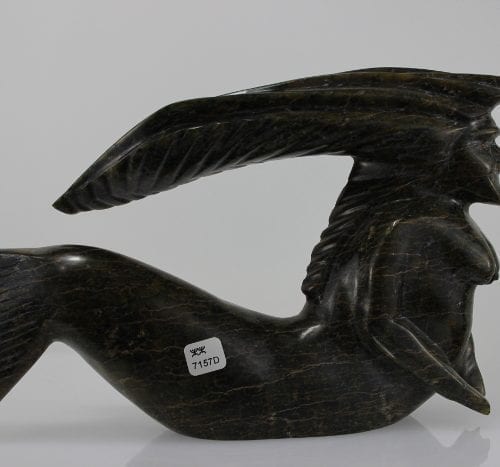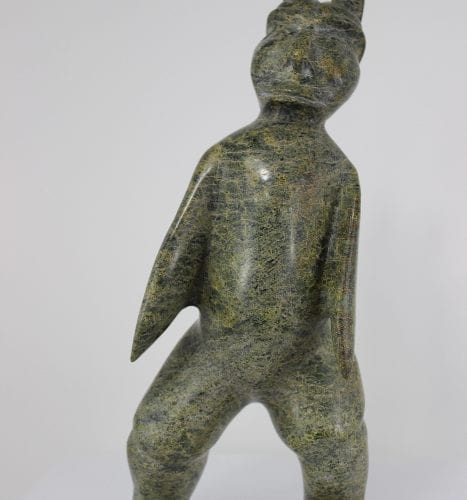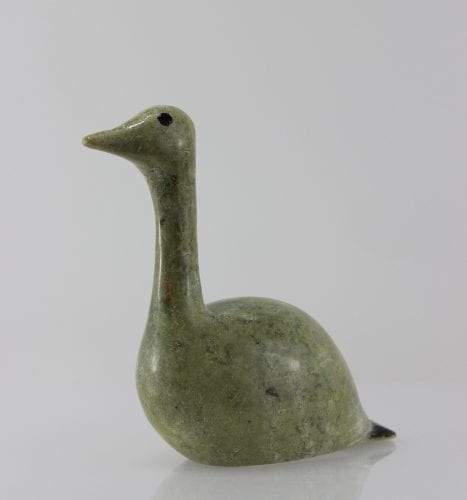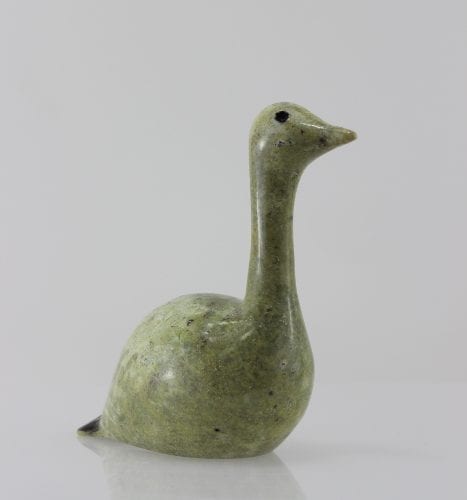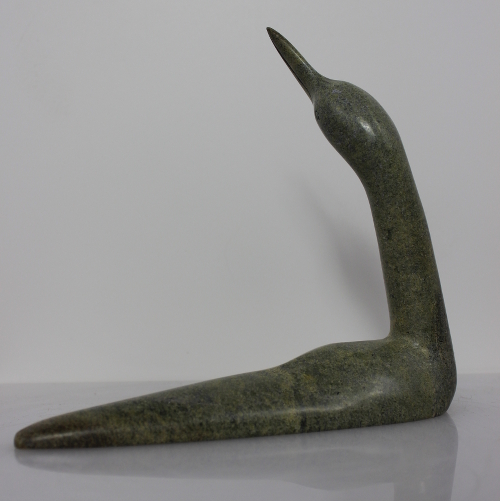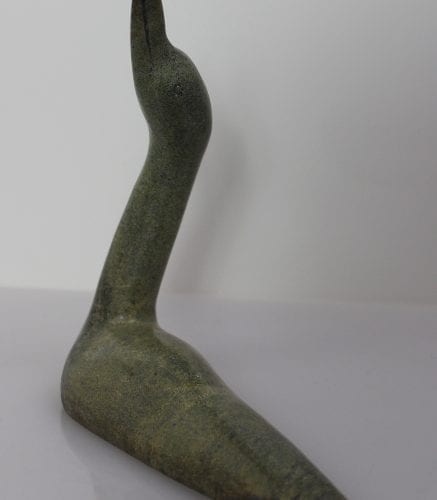Description
This carving of a Bird by Kellipalik Etidloie from Kinngait – Cape Dorset is a nice example of Kelly’s favourite subject matter: animals from the north. The carving too represents Kelly’s mastery of the art of carving, his style is distinctive and executed with fluidity. His animals are typical in graceful, playful motion, or caught in the everyday mundane of scratching, preening, feeding. Then again, it may be caught in that moment of attentive, frozen in motion, tension.
This Bird by Kellipalik Etidloie seems to be spreading its wings. Maybe it is getting ready to find greener pastures.
Bio Kellipalik Etidloie
Kelly Etidloie
(1966 – ) | Cape Dorset, Nunavut, Canada
Kelly Etidloie was born in Cape Dorset on April 25th, 1966. His birth parents Etigajaarjuak and Taktu Pee lived on the land. His mother passed away shortly after child birth and Kelly was adopted by Kingmeata and Etidloie who lived in Cape Dorset. Kingmeata and Etidloie spent a lot of their time working on their art. Kingmeata Etidlooie was born and raised at Itinik Camp near Lake Harbour, Northwest Territories (1915 – 1989). She married Etidlooie Etidlooie and had a family.
Kingmeata carved stone and drew at the beginning of her artistic journey. Etidlooie Etidlooie (1910 – 1981) was also encouraged to develop his artistic talents. Kingmeata and Etidlooie moved their family to Cape Dorset in the 1960s and joined the renowned printmaking studio the West Baffin Eskimo Cooperative. Etidlooie Etidlooie carved stone inspired by the natural and spirit world. Kingmeata Etidloie is well known for her talents in watercolours and acrylics. She was one of the first Inuit artists to explore painting. Kingmeata enjoyed printmaking and a number of her prints were published in the annual print catalogues from 1970 – 1988. Kingmeata often explored bird themes in her work and her prints, drawings and paintings reside in numerous collections in galleries across Canada. Etidloie Etidlooie’s drawings were very detailed, not easily translated into the print making medium of the Cape Dorset collections. His drawings depicted scenes of living on the land before the modern changes. Etidlooie has been featured in numerous shows and solo exhibitions for his coloured pencil and felt pen drawings on paper.
Kingmeata and Etidlooie passed on their artistic talents to many of their children. Omalluq Oshutsiaq, Etulu Etidloie, Pukaluk Etungat and Kellypalik Etidloie. Kelly was the youngest in the family. His father Etidlooie carved humans, birds and seals. Kellypalik learned to carve by watching his elders and by helping his sister Omalluk. He would watch his sister carve pieces and help Omalluk sand and finish her carvings. She encouraged Kelly to carve so he could make money. Kelly carved his first piece which was a bird at the age of 15 in 1981.
He continued to work on his abilities and went to Montreal for 5 years to work for Polar North. The owner would provide the artists with stone from Cape Dorset. There were other carvers from Cape Dorset in Montreal at that time as well; Moe Pootoogook, Markoosie Papigatok, Teevee Atsealak and Pauloosie Joanasie. Kelly is a big fan of the Montreal Canadians NHL hockey team and was pleased to have gone to a live game while he was living in Montreal.
Kelly returned to Cape Dorset and continued his carving career at home. He used to carve with Isacie Etidloie, his nephew but now he carves by himself. His common-law wife Annie Salomonie helps finish some of his carvings and sands them.
Kelly does not mine his own stone. He has noticed the stone in the community can have more cracks that it used to in the past. Since the 1980s Kelly has been using mainly power tools. The grinder for roughing out the piece and the dremel for finishing and the details of his sculptures. These power tools have replaced the axe and chisel. Kelly does all the fine works of his wing details and musk ox hair with the dremel tool. Sanding is done by hand, Kelly works with finer grit sandpaper for his polished look.
In the past, Kelly was known for his carved masks with human faces and birds incorporated into the design. Over the past few years, Kelly has been exploring the theme of wildlife grooming themselves. A bird preening with a delicate feather in it’s beak and a beautiful outstretched wing. The scratching musk ox with detailed hooves and a turned head. Kelly captures the intimate moments of birds feeding their young. His favourite bird to carve is the owl.
Kelly enjoys carving musk ox because it gives him the chance to add more details. His work has developed over the past few years from straight hair to windswept hair, effectively capturing a subtle moment of movement. The running musk ox included in the current collection has one front paw bent backward and the musk ox hair has tremendous motion, capturing a musk ox in a moment of flight. Kelly’s musk ox can also be standing strong and stoic taking on the challenges of the north in stride. Survival is what the musk oxen do best, they have been on the earth since the Ice Age.
When Kelly was a young child, he would be out on the land hunting and fishing with his parents. Presently during the summers, Kelly and his family go walking on the land along the coast for clam digging. He observes birds during this time and uses it for inspiration in his work. He carves today because he has the skills and can provide for his family. It is rewarding for Kelly to finish a piece and be able to sell it.
